Fall through Spring Read online
Table of Contents
Blurb
Dedication
Author’s Note
Carpenter and Food
Dane and His Brother Go on an Adventure
The Meet Cute
Giving Thanks
Blessings
Freedom
Freedom Is Slavery
Breakfast Bar Love
To Touch a Star
Hard Line to Walk
Lost Spring
Better Than Cookies
We Can Be Heroes
Safety and Caution
Changewinds
Becoming the Quiet Bright
At Last
Amy Lane Lite
Light Contemporary Romance
Readers love the Winter Ball series by Amy Lane
About the Author
By Amy Lane
Visit Dreamspinner Press
Copyright
Fall Through Spring
By Amy Lane
A Winter Ball Novel
As far as Clay Carpenter is concerned, his abusive relationship with food is the best thing he’s got going. When a good friend starts kicking his ass into gear, Clay is forced to reexamine everything he learned about food and love—and that’s right when he meets troubled graduate student, Dane Hayes.
Dane Hayes doesn’t do the whole monogamy thing, but the minute he meets Clay Carpenter, he’s doing the friend thing in spades. The snarky, scruffy bastard not only gets Dane’s wacky sense of humor, he also accepts the things Dane can’t control—like the bipolar disorder Dane has been trying to manage for the past six years.
Dane is hoping for more than friendship, and Clay is looking at him with longing that isn’t platonic. They’re both positive they’re bad at relationships, but with the help of forbidden desserts and new medication regimens, they prove outstanding at being with each other. But can they turn their friendship into the love neither of them has dared to hope for?
So I’m Carpenter and my daughter is Dane, and somehow we make it work and we crack each other up and worry about each other and daily prove that love is the answer. Love you, honey.
Author’s Note
I HADN’T planned on writing Dane and Carpenter at all, but I finished Mason and Terry’s book and somebody DM’d me on FB saying, “Whoever is Dane in your life, I wish you the very best. You obviously understand what that’s like.” And then I realized Dane needed his own book. And other people pinged me on Twitter and FB and said, “Carpenter gives us hope.” And I realized he needed his own book too. And as hard as books like this are to write, I think it’s worth it because we all need our own book, and we all need to know happy is for everybody.
I hope, whoever you are, you find your happy.
Carpenter and Food
At Seven
CLAY ALEXANDER Carpenter was the first to admit it—his first love was a chocolate chip cookie. It was an illicit affair, because he wasn’t supposed to eat cookies like that. His mother didn’t believe in refined sugar, red meat, gluten, dairy, or saturated fats.
This cookie was four out of five of the things his mother disdained most about the world.
And it wasn’t that Carpenter hated his mother. In fact, she was a lovely woman, kind, giving out hugs during appropriate times, very worried about making sure her children grew up to be happy, productive citizens with a closet full of childhood memories that would give them strength as they got older.
It was just that, well, she was a very busy woman—never too busy for her children, mind you—but she had meetings, and she had to give the maid directions to clean the house, and she had a job too, as a lobbyist, and she had to make sure her children were happy and fulfilled and doing extremely well at school.
Carpenter’s father was the same way. Kind, civic-minded, spent an allotment of happy, fulfilling time with his children, never yelled.
That was another thing.
There was no yelling in the Carpenter household. Yelling would be the sixth thing his mother hated in her home, but that would have involved hating and bringing the toll up to seven things. And honestly, Carpenter’s mother was really a nice person, and she didn’t have room in her heart for that much hate.
By the time Carpenter was in second grade, he was beginning to suspect he might.
For one thing, he hated the kids in his school.
He’d shown up on the first day of second grade wearing jeans that fit perfectly and a T-shirt that had a picture of Chewbacca on it. His mother had allowed him to pick his own clothes, and she’d been surprised. “Chewbacca, honey? Do you even know what that is?”
“It’s a who, Mother,” Clay had answered reasonably. “He’s a Wookiee. His species doesn’t make a difference in his personhood.”
His mother smiled happily. “What a wonderful argument, Clay. Well, with reasoning like that, I’m pleased to buy it for you. But where did you see this movie?”
“I don’t remember,” Clay lied. Of course he remembered. He’d awakened one night over summer vacation, when they were allowed to sleep until eight in the morning instead of six thirty. He’d been hungry, so he’d made himself an organic peanut butter with sugarless preserves on nut-grain unleavened bread sandwich, and turned the television on in the family room, very quietly. It was after eleven, so he must have found East Coast feed on cable—but he’d never forget that movie.
It had been perfect. A revelation. A vision of stars and wars and laser weapons and giant hairy beasts who wore artillery packs on their chests.
When he’d seen the T-shirt in the store, he’d almost cried.
So he was proud of that shirt as he walked into school. And then the kids had hit him with, “But isn’t that passé?” “Oh my God, the second series is so dumb. My parents said Jar Jar Binks was a racist stereotype.” And, worst of all, “You’re going to grow up to be a big fat hairy Wookiee just like Chewbacca!”
Carpenter didn’t realize that this was the price he had to pay for going to a “good” school, where all the kids had television sets in their own rooms and the parents were rich and trying to send their kids to first-tier colleges, which was why they’d all had flashcards in SAT vocabulary by the second grade. He knew he was smart because he had test scores that proved it—smarter than most of his peers, but he wouldn’t know that until middle school when he started to suspect he was the only one who got tutored in algebra by his older sister, Sabrina, and not a college student desperate to make ends meet.
All he knew at that moment was that he would throw himself in traffic for Chewbacca, and while he was not allowed to say “hate” in his home, he hated his peer group with the solar viciousness of the suns of Tatooine.
He’d felt that way until Calliope Prescott sat at his table and looked furtively around.
“They’re dumb,” she said softly. “They’re stupid dummy heads and I hate them!”
Carpenter gazed at her with enchantment in his eyes. Calliope Prescott was different from the other kids at school. For one thing, she was not as pale. Without knowing anything about race, Carpenter totally appreciated that Calliope Prescott had slightly darker skin than his other classmates—skin the color of the organic bread his mother was so fond of, but on smooth apple cheeks instead. She also had luxuriously thick and curly hair, often tamed into long asymmetrical braids with bright rubber bands on the end.
Calliope Prescott was extraordinary, and she’d said the magic forbidden word.
For a brief moment, Clay thought she was the best thing to ever happen to him.
“I hate them too,” he whispered, staring at her with stars in his eyes.
“Star Wars is a great movie,” she told him staunchly.
“It’s the best,” he said.
She p
ursed her lips. “Empire Strikes Back is better, I think. And I love the little teddy bear things in Return of the Jedi.”
Clay’s mouth fell open slightly. “There’s more movies than just the one?”
She’d laughed, her mouth open, unafraid to make noise. “Yeah, silly! You should come over to my house and watch them!”
Clay nodded. “Oh yes,” he whispered. “I would love that. Do you think your mother would let me?”
She regarded him soberly. “Do you think your mother would let you? We’re the only black family in the entire school.”
“You’re not black,” Clay said, confused. “You’re brown. But my parents have lots of brown friends. They won’t care.” His parents were lobbyists for a civil liberties organization. Later, he would realize that meant they had money and a social justice conscience, but right now he knew she looked a lot like his mother’s best friend and her wife. But Calliope wasn’t ordinary, like his mother’s friends. She was extraordinary, because she was Clay’s friend.
Calliope smiled widely. “Good, then! If you can give me your number, I’ll have my mom call your mom. It’ll be fun. My brother has friends over all the time—this time it’s my turn.”
Her brother, Jordyn, was a nice kid—as beautiful as Calliope and just as invested in Star Wars. The three of them spent hours watching the trilogy while their mom baked cookies.
Clay was entranced by the smell. To him, the pew-pewing of lasers would forever be linked to permission to relax on a couch with his bare feet up while two friends sprawled over his legs as that scent—perfect and wholesome and sweet and amazing—rolled through a slightly messy house.
After Empire Strikes Back spun through the VCR, Mrs. Prescott came into the living room—the living room!—with a plate of cookies and three glasses of milk.
Clay stared at that plate of cookies with lust in his eyes.
“Do you have any allergies, Clay?” Mrs. Prescott asked, as if she had just remembered. “Nut allergies, gluten, dairy?”
“No,” Clay whispered, because his mother had gotten him and his sister tested, just in case they accidentally ingested a strawberry soaked in cream and deep fried in chocolate frosting. “Are those cookies?” They did not look like the applesauce carob cookies he got on special occasions.
“Yes—here. I’ll rewind the Jedi tape, and you kids can come have cookies. No more than three, okay? Clay has permission to stay for dinner, and I don’t want you three wrecking your appetites.”
“Three?” Clay loved this house. He loved Calliope, he loved Jordyn, he loved their mother, and he loved the entire Star Wars franchise.
“Is that not enough?”
“It’s perfect,” he breathed.
And oh my God, they really were perfect. He finished the first one and realized that Jordyn and Calliope were staring at him.
“Wha?” he asked, wiping his mouth off with the back of his hand. It came back covered in chocolate and cookie crumbs.
“You were singing!” Calliope laughed that openmouthed laugh. “To your cookie!”
For a moment, Clay thought about getting hurt, but Jordyn’s eyes were big and excited too. They were looking at Clay like he was extraordinary. He smiled at them through his mouthful of chocolate chip cookie and sighed contentedly.
“They’re the most wonderful thing on earth,” he said, and they laughed like he was the funniest person on the planet.
Maybe he was.
His mother picked him up at seven o’clock, right after dinner, after exchanging pleasantries with Mrs. Prescott. Cheryl Carpenter was nothing if not polite, but in far too short a time, Clay was sitting in the back seat of the family SUV, humming to himself about cookies.
“So, sweetheart, did you have a good time?”
“Yes, Mom.”
“What did you have for dinner?”
Clay closed his eyes and tried to remember what Mrs. Prescott had told him. “Broccoli lasagna and salad,” he said dutifully. Except Mrs. Prescott had asked him if he was allergic to meat, and he’d said no, and the lasagna had been heavenly, even though hamburger was only an eight on a scale of ten because cookies were an eleven.
“Well, I hope the gluten in the noodles doesn’t stop you up or make you gassy,” she said worriedly.
Of course he was gassy. He was so gassy that Snoodles, the family dog, ran out of his room whining in the wee dark hours, and Clay’s mom and dad spent part of the morning wandering the house, looking for where Snoodles had done his business, because they sure did smell something bad!
But no, Snoodles was the well-behaved rat terrier he’d always been.
Clay was just learning the price of bliss.
At Fifteen
MRS. PRESCOTT took Clay in a lot over the next eight years. When he was eleven, he learned how to ride his bike—not because he loved physical exercise, but so he could ride his bike over to the Prescott house and play games with Jordyn and Calliope and watch movies and, yes, have cookies.
One day when he was fifteen, he got there and Mrs. Prescott and Calliope were shopping for a dress. Some douchebag—Clay and Jordyn both believed he was a douchebag—had invited Callie to the school dance.
They sat, alone, a plate of chocolate chip cookies between them, playing video games, until Clay’s character died and Jordyn didn’t reboot.
“What?” Clay asked, looking at his friend. Jordyn scooted a little closer. He was handsome, with skin a rich gentle bronze and eyes a surprising green. He was about a year and a half older than Calliope. He graduated that year, and had been active all his life. Meat in his lasagna notwithstanding, Jordyn Prescott played football and soccer and worked out almost as much as he played video games. He’d been admitted into several colleges on academics alone, and he’d told nobody—not even his sister—why he hadn’t tried to get any sports scholarships.
And he had this kind of charisma, this internal centering, that made everybody love him.
And he was looking at Clay with a sort of yearning in his eyes. A yearning Clay recognized. He wasn’t athletic. Since his first afternoon in the Prescott living room, he’d tried every sport known to man. Soccer, softball, track. None of it seemed to take. He just didn’t see the point—and his opinion of his peers had in no way made him want to run faster or kick the ball better or shoot with any accuracy, just to make them happy.
So his body was a little bit soggy, although his calves were in excellent shape from all the times he rode his bike to see Jordyn and Calliope.
“You’re not going to the dance,” Jordyn said, from his sudden close distance.
Clay’s cheeks heated. “We usually go as friends, but Keith Mancuso asked her for real, so no friends.”
“Have you ever kissed a girl?” Jordyn asked, and to this, Clay could give a better answer.
“Yeah, couple times.” He smiled winsomely. “Girls like me—I have no idea why.”
“Because you’re nice to everybody,” Jordyn half laughed. “Will you be nice to me?”
Clay was about to ask what he meant by that when Jordyn kissed him.
Clay’s eyes widened in surprise. He knew what a kiss was—he knew why you did it. He hadn’t had a chance to say it, but he’d gotten to second base a couple of times, and one girl had gone down on him.
And he knew what gay was, and he’d been pretty sure that he wasn’t it.
But he liked Jordyn and didn’t want to hurt his feelings, so he relaxed and let Jordyn’s mouth move over his, and let Jordyn’s hands move on his shoulders.
And his body started to do the same things it did when girls kissed him. Pleasant things. Beautiful things. He pulled in a surprised breath and started to kiss Jordyn back.
The car in the driveway pulled them apart, but Jordyn’s cheeks showed a flush, and his lips were swollen, and he looked as vulnerable as Clay felt.
“What was that?” Clay whispered as Jordyn straightened his hair and pulled back.
“I’m gay,” Jordyn said, sounding panicked.
>
But Clay liked girls too. “But I’m… not?” But he didn’t know for sure. All he knew was that Jordyn’s expression turned stricken and sad, and before Clay could explain, Calliope and her mother came in, drunk on talk about A-line skirts and pencil skirts and full skirts.
Clay just watched as Jordyn picked up his remote control and resumed play with a steely-eyed concentration that excluded everything.
Including Clay.
The plate of chocolate chip cookies sat between them, and Clay started to eat them, steadily and without stopping.
He finished off the entire plate of cookies, and Jordyn didn’t say a thing.
At Twenty
“OH, HONEY,” his mother said worriedly. “You’ve put on so much weight this semester. Don’t they have fresh food options at USC?”
“Of course they do!” Clay practically yelled. Yes, he knew he was becoming a watermelon, but he was actually trying to tell her something. She and his father had come to visit during spring vacation because he’d seemed—in their words—a little erratic.
He was, in fact, miserable.
He’d started out okay. He had a place to lock his bicycle, so he’d managed to keep in decent shape, and he’d done his best in all his classes. Then he’d met a girl—of course, wasn’t it always a girl?—and she’d reminded him of Calliope, who hadn’t gone away to school but had settled down and attended junior college so she could keep dating Keith and they could plan a life together.
Jordyn had come out in college, and his parents had been supportive and loving—but he never called Clay again. And Clay was forced to be content with playing video games and watching sci-fi with Calliope and Keith, which wasn’t bad, but Clay missed Jordyn enough to recognize a crush when it squeezed his heart a little.
He wasn’t sure what to do with that information. He still liked girls. But those moments with Jordyn, that surprising kiss, haunted him.
He wanted to kiss another guy, just to see.

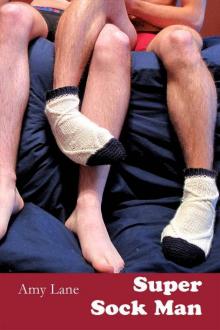 Super Sock Man
Super Sock Man Safe Heart (Dreamspun Desires Book 102)
Safe Heart (Dreamspun Desires Book 102)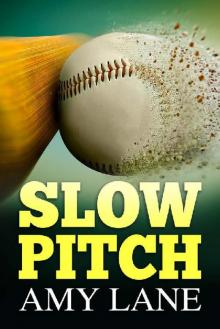 Slow Pitch
Slow Pitch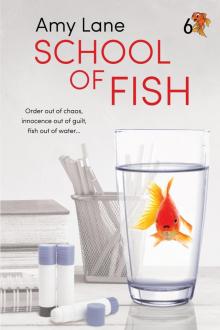 School of Fish
School of Fish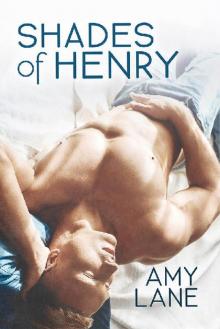 Shades of Henry (The Flophouse Book 1)
Shades of Henry (The Flophouse Book 1)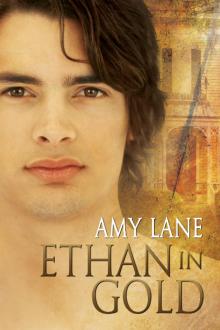 Ethan in Gold
Ethan in Gold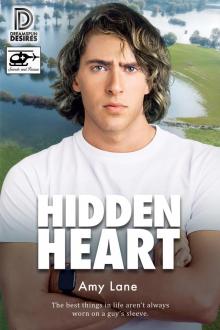 Hidden Heart
Hidden Heart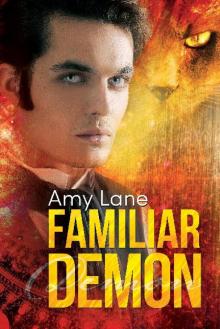 Familiar Demon
Familiar Demon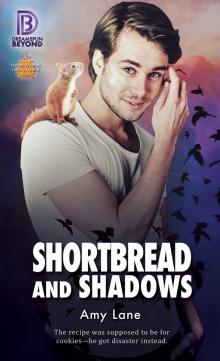 Shortbread and Shadows
Shortbread and Shadows Silent Heart
Silent Heart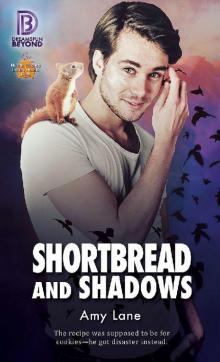 Shortbread and Shadows (Dreamspun Beyond Book 41)
Shortbread and Shadows (Dreamspun Beyond Book 41)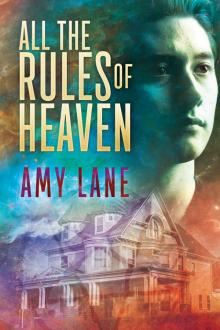 All the Rules of Heaven
All the Rules of Heaven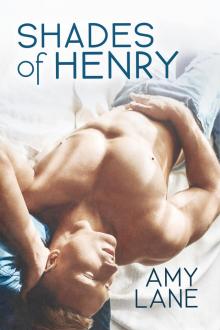 Shades of Henry
Shades of Henry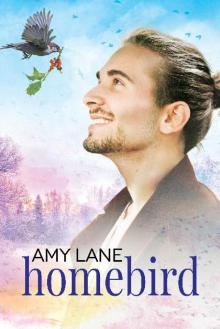 Homebird
Homebird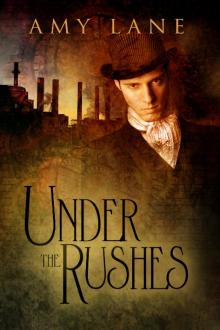 Under the Rushes
Under the Rushes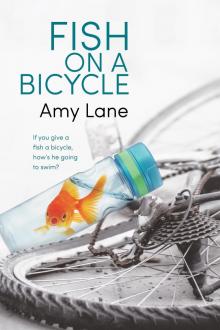 Fish on a Bicycle
Fish on a Bicycle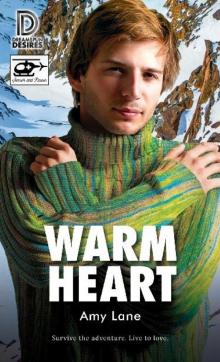 Warm Heart
Warm Heart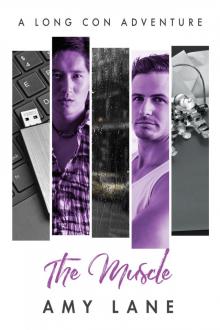 The Muscle
The Muscle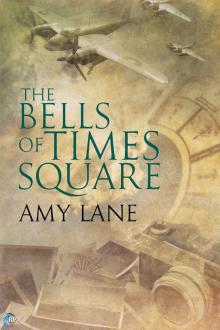 The Bells of Times Square
The Bells of Times Square![Jack&Teague [& Katy] stories 1-5 Read online](http://i1.bookreadfree.com/i/03/19/jackandteague_and_katy_stories_1-5_preview.jpg) Jack&Teague [& Katy] stories 1-5
Jack&Teague [& Katy] stories 1-5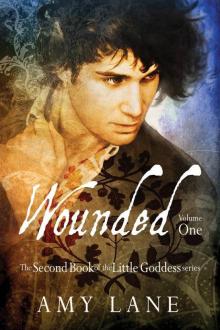 Wounded, Volume 1
Wounded, Volume 1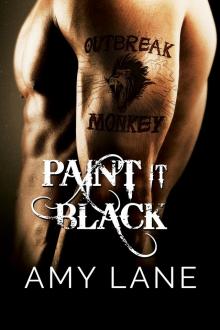 Paint It Black
Paint It Black The Virgin Manny
The Virgin Manny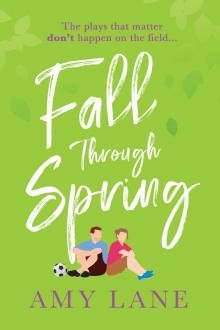 Fall through Spring
Fall through Spring Clear Water
Clear Water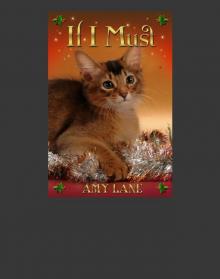 If I Must Lane
If I Must Lane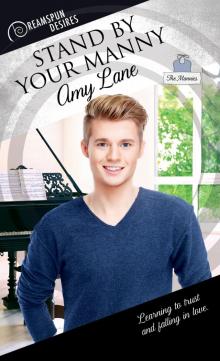 Stand by Your Manny
Stand by Your Manny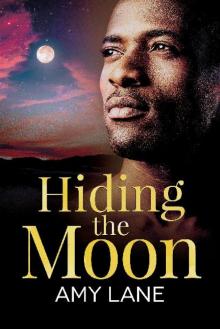 Hiding the Moon
Hiding the Moon Freckles
Freckles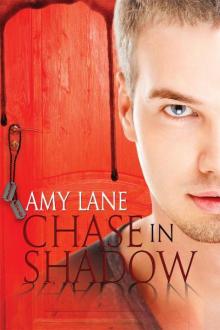 Chase in Shadow
Chase in Shadow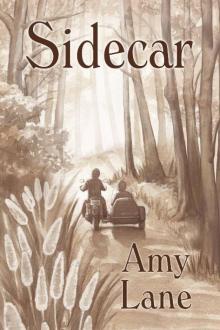 Sidecar
Sidecar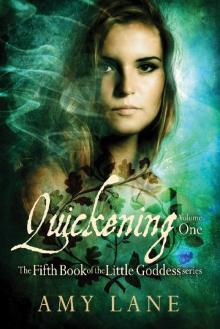 Quickening, Volume 1
Quickening, Volume 1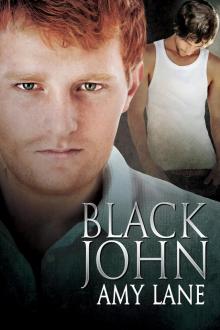 Black John
Black John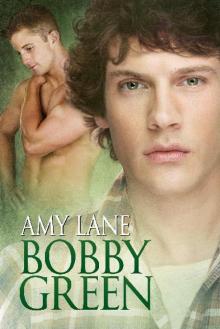 Bobby Green
Bobby Green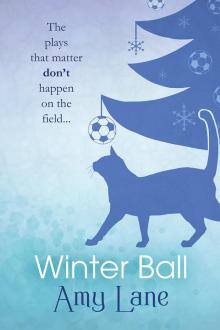 Winter Ball
Winter Ball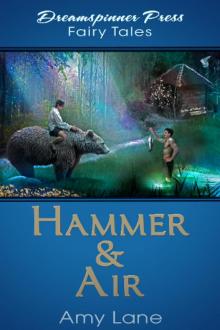 Hammer & Air
Hammer & Air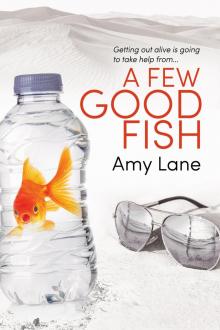 A Few Good Fish
A Few Good Fish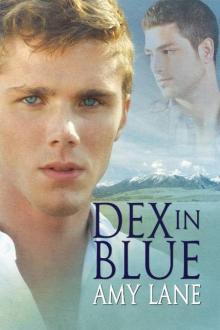 Dex in Blue
Dex in Blue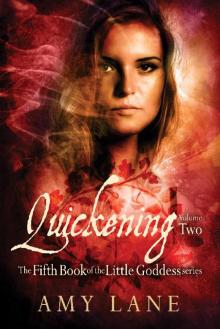 Quickening, Volume 2
Quickening, Volume 2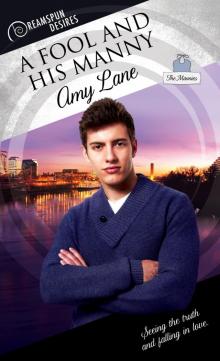 A Fool and His Manny
A Fool and His Manny Manny Get Your Guy (Dreamspun Desires Book 37)
Manny Get Your Guy (Dreamspun Desires Book 37)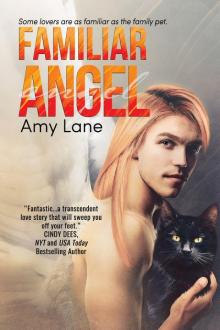 Familiar Angel
Familiar Angel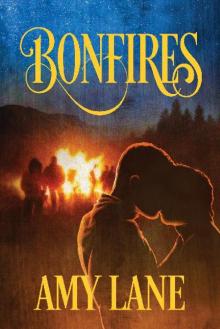 Bonfires
Bonfires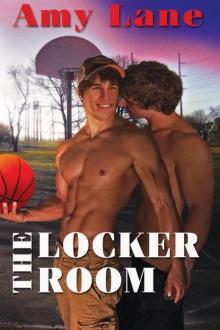 The Locker Room
The Locker Room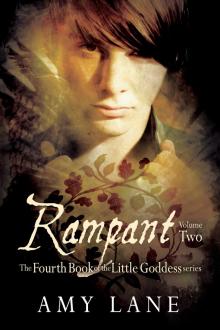 Rampant, Volume 2
Rampant, Volume 2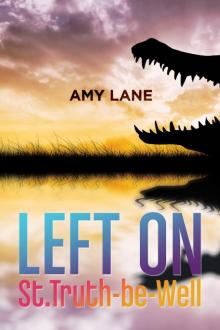 Left on St. Truth-Be-Well
Left on St. Truth-Be-Well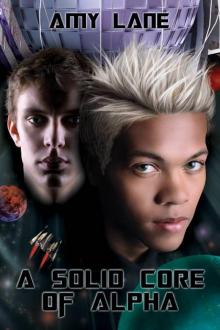 A Solid Core of Alpha
A Solid Core of Alpha Red Fish, Dead Fish
Red Fish, Dead Fish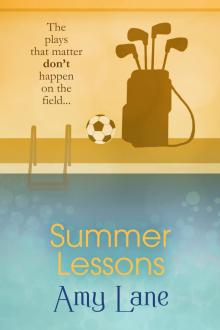 Summer Lessons
Summer Lessons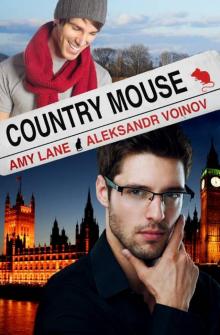 Country Mouse
Country Mouse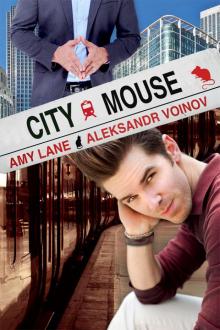 City Mouse
City Mouse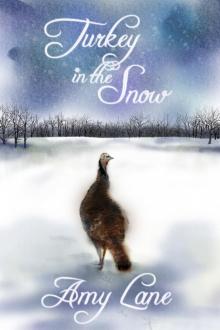 Turkey in the Snow
Turkey in the Snow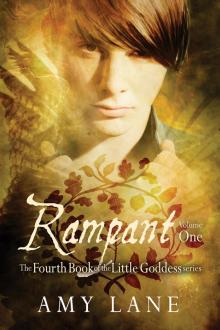 Rampant, Volume 1
Rampant, Volume 1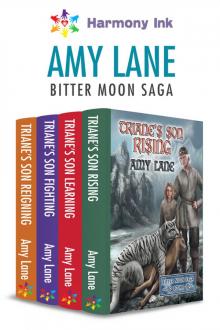 Bitter Moon Saga
Bitter Moon Saga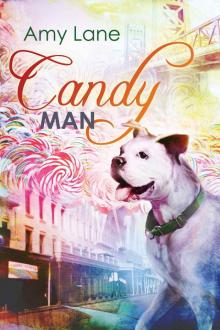 Candy Man
Candy Man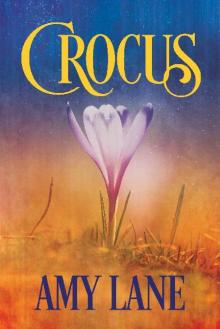 Crocus
Crocus Green's Hill Werewolves, Volume 2
Green's Hill Werewolves, Volume 2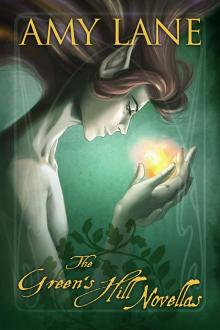 The Green's Hill Novellas
The Green's Hill Novellas